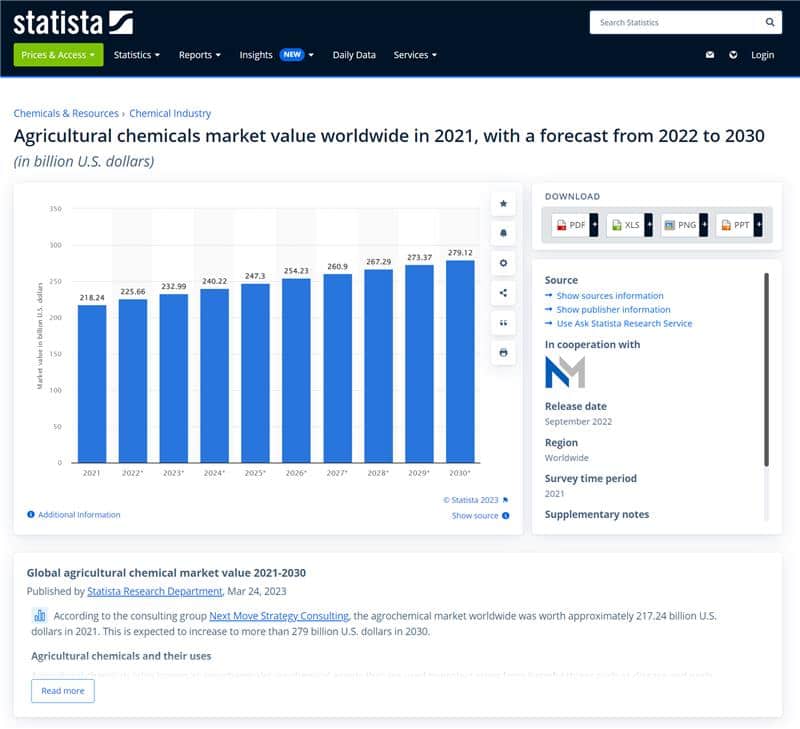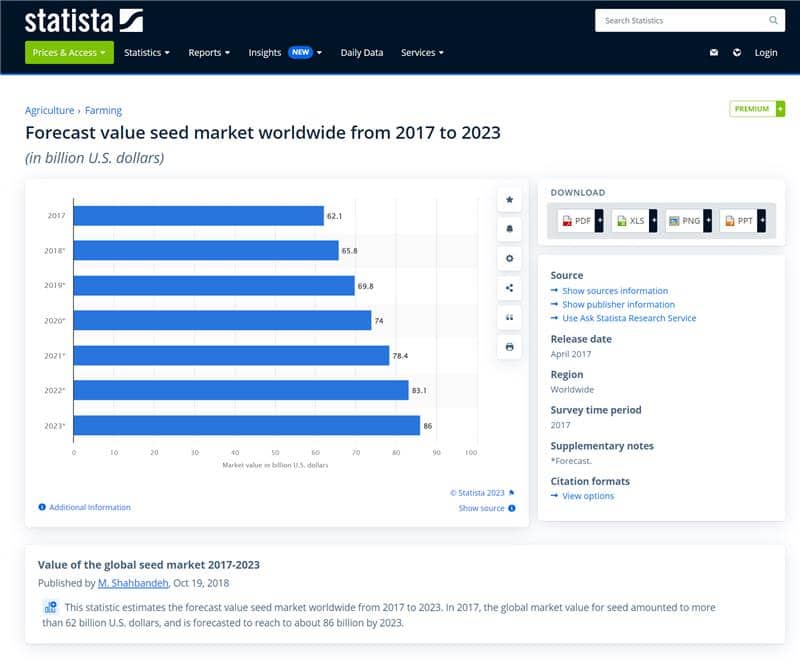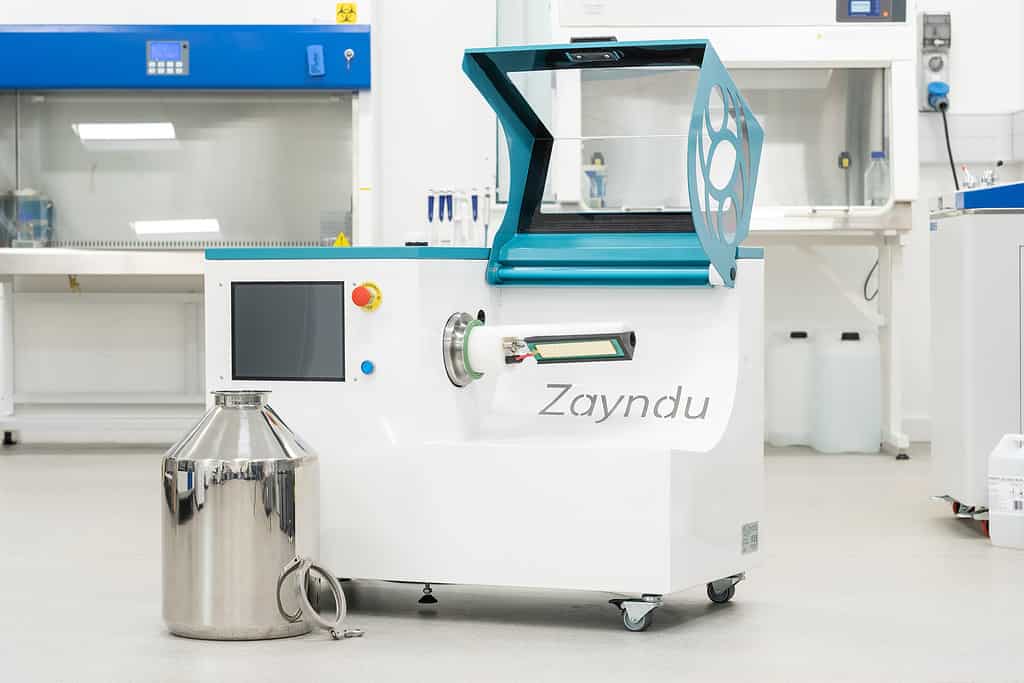Vertical Farms & Greenhouses: How to Achieve Boosted Germination

Agrochemical pesticides are chemicals used to protect crops from any kind of biotic threat that could affect their harvestability. They are primarily used on farms and in controlled growing environments, such as vertical farms, greenhouses, and polytunnels.
While the idea of an organic food chain is highly appealing, modern chemical pesticides can offer significant yield benefits. Starting from germination right through to crop yield per hectare, pesticides have been used to increase the productivity of the soil.
Agrochemicals date back thousands of years, with what is thought to be the first use over 4500 years ago. The Sumerian people are said to have used sulphur compounds as insecticides (one of the main pesticides) to keep insects away and control the attack on their crops. Following this, there have been continuous documented accounts of the use of chemicals in agriculture throughout the years, giving them a trusted and reliable name for crop protection.
So, not only are agrochemicals seen as reliable, they have also been labelled as a viable way to protect crops from pests, ensuring that they can grow unaffected by diseases. In fact, these chemicals have played a significant role in enhancing the growth of crops as well as increasing yield rates, but does this mean they are environmentally friendly and safe?
Pros and Cons of Pesticide Use In Farming and How AgTech Will Help (challenge.org)
- Insecticides – used to deter insects from feeding on the produce
- Herbicides – used to kill malicious plants that damage crops
- Rodenticides – chemicals that protect plants from rodents
- Bactericides – kills bacteria on the surface (or inside) of the plant
- Fungicides – help plants in areas where they are prone to fungus infections
- Larvicides – used to effectively kill larva in areas where crops are prone to it
What chemicals are used in agriculture? – Studybuff.com
- Glyphosate – used to control grass and kill weeds (banned by over 10 countries)
- Acephate – kills insects from feeding on the the produce
- Deet – used as a insect repellent, killing any insect that bites
- Propoxur – kills insects from feeding on the produce
- Metaldehyde – mainly used to kill slugs, snails and garden pests
- Boric Acid – kills insects but offers boron for the development of crops
- Diazinon – used to control insects on various crops
- Dursban – used to control insects of various crops
- DDT – used for insect control and lower the pH of soil (banned by over 15 countries)
- Malathion – used to kill insects and pollinating insects, such as bees.
Despite being seen as a standard need for farms, agrochemicals have been increasingly harmful to not only the surrounding soil but, surprisingly, the actual crops themselves. Glyphosate and DDT are strong examples of this, with their long recorded histories of environmental and human damage.
Glyphosate has been banned in over 10 countries after the discovery of the harm it can cause to the human body. In an article about Mosanto’s ‘Round Up’, Amylee Amos writes:
Just knowing that glyphosate is known to cause cancer should be reason enough to make you want to avoid it at all costs. But also, if glyphosate is known to cause cancer, what other correlations with chronic diseases have we not yet established? Only time will tell.
Glyphosate in Monsanto’s ‘Roundup’ and Alzheimer’s Disease | Amos Institute Blog
Statista has released graphs indicating the market value of seeds (from 2017 to 2023) as well as a projection for the market value of agrochemicals (from 2021 to 2030). As these examples follow a slightly different timescale, we can compare the three dates that the graphs have in common.
As shown in 2021, the seed market value is $78.4 billion, whereas the market value for agricultural chemicals stands at a whopping $218.24 billion. Now if we jump forward to 2023, we can see that the market seed value has increased to $86 billion, and the projection for agrochemicals is $232.99 billion.
So if we’re spending so much money on agrochemicals, surely the logic means they are doing more good than bad—that the increase in farm production and profit outweighs harm to our bodies, nature, and the environment.


Despite the amount of money being put in, chemicals have another downside, aside from the health issues. Many chemicals have an adverse effect on the environment long after their beneficial effects have faded. Somehow, farming has to reduce dependence on these chemicals without losing the benefits. Environmental concerns abound; bees and insects are highly effective pollinators and are sensitive to these chemicals.
The short-term gain from chemicals may result in devastating long-term consequences.
On Challenge.org, Carlos Miskinis writes,
At the end of the day, pesticides are poisons – toxic chemicals that don’t just harm the “malicious bugs” that attack plants, but the consumer, producer (farmer) and the environment as well.
Pros and Cons of Pesticide Use In Farming and How AgTech Will Help (challenge.org)
So, why are we so adamant on using them if they’re causing harm to not only the soil but our bodies too? And not to mention the bees!
DDT, seen in the agrochemical list, is a prime example that is tied into potential risks for health (seen as a possible human carcinogen) towards not only our bodies but important pollinating insects, such as bees. Neonicotinoids, another example, though not mentioned on the list, is a banned pesticide that has been noted as responsible for negatively impacting the lives of bees.
A BBC articles outlines the effects Neonicotinoid can have on bees, stating:
Studies have shown that the group of pesticides damage the nervous systems and navigational abilities of bees and other pollinators. The pesticides can also end up in streams and rivers and harm aquatic life, and can persist for a long time in the environment.
UK allows emergency use of bee-harming neonicotinoid pesticide – BBC News
An article from CSIRO states,
Agri-chemicals will continue to be used in some way to address pest problems for the foreseeable future, but we must find ways to make their negative consequences less far-reaching and long-term. Changes are also needed to mitigate resistance evolution and extend the practical effective lifetime of pesticides.
A short history of agricultural chemical usage and development – CSIRO
So, in order to implement change, we must obtain a solution to the problem at hand. This means working at finding a less harmful product that is tailored for the preservation of land as well as protection for crops.
Here at Zayndu, we have found a way to protect your seeds without the use of any agrochemicals or pesticides! And as an additional bonus, our seed priming boosts your germination and crop yield, ensuring the health of your seeds.
As mentioned previously, agrochemical pesticides have been noted to also increase yield and crop health, but this is all achieved through the protection of the crops. If there are no pests to remove, the crops will, as expected, grow sufficiently.
But at Zayndu, we don’t just achieve a sufficient yield rate—we accomplish a boosted one. Whether this is boosted germination, yield, or harvestability, our cold plasma seed treatment delivers better and healthier crops.
With a lot of help from cold plasma, we provide you with a way for your seeds to thrive without the harshness of chemical use.
How, you ask.
We start at the beginning.
We replace chemicals with clean technology – using only air and electricity.

If you’re interested in finding out more about our seed technology, and giving your crops the best chance to thrive, visit our website or send us an email at info@zayndu.com
Or if you would like to find out more about our dry, and agrochemical free process, you can read our Z10 data sheet, here.
Vertical Farms & Greenhouses: How to Achieve Boosted Germination
Is Vertical Farming Making a Comeback in the US?









Zayndu Limited
Advanced Technology Innovation Centre,
Loughborough University Science & Enterprise Park
5 Oakwood Drive, Loughborough, LE113QF UK
T: +44 (0) 1509 276225